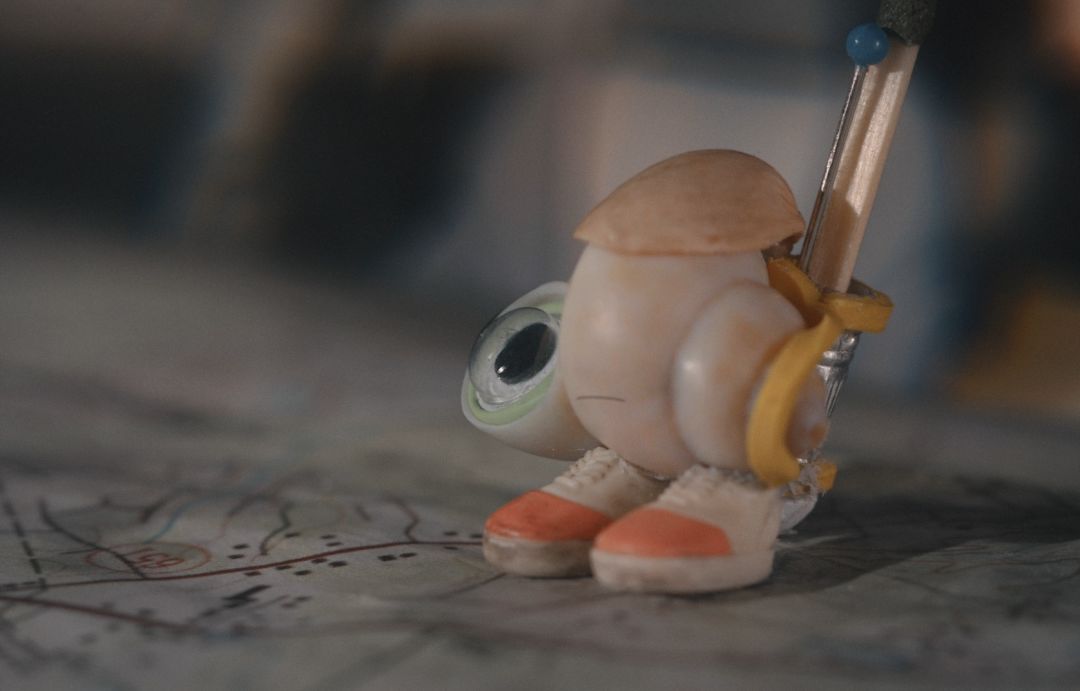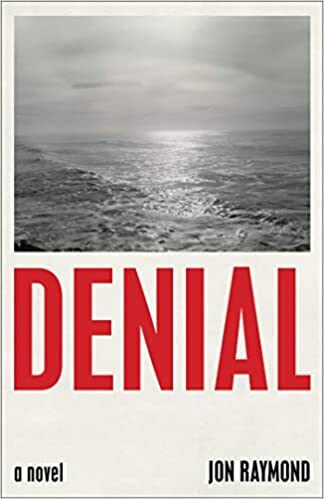Mid-Year Pop Culture Report

Our favorite pieces of 2022 pop culture ask big questions like, "What if a shell had a little backpack?"
Image: COURTESY A24
2022 is halfway over, and because I am a sensitive only child who has only ever learned to process my emotions through mediated narratives—shoutout to my boyfriend!—that means I have spent a lot of time thinking about my favorite pieces of art from the year so far.
I don’t mean “art” in the museum way, but I’m gunning for something more elevated than “content.” “Culture” feels too amorphous, and “movies, music, theater, and books” doesn’t roll off the tongue. Call it what you want—this is my favorite stuff of 2022 so far.
MY 5 FAVORITE ALBUMS OF 2022
1. Big Thief, Dragon New Warm Mountain I Believe in You
If you’re going to call your album this and then make it last for 80 minutes, you better be able to back it the hell up. Here, Big Thief invents the concept of backing it the hell up. These chest-opening, softly psychedelic songs do things to me that surgeons and microbiologists alike wish they could understand. Adrianne Lenker’s telescoping lyrical perspectives on tracks like "Change" and "Simulation Swarm" land like dispatches from some ur-consciousness, and the sheer breadth of styles—from John Prine nods ("Red Moon") to latter-day Radiohead ("Flower of Blood") to a mystical Sufjan Stevens moment (the title track)—make it almost impossible to tire of immersing yourself in Dragon New Warm Mountain's sprawl.
2. Angel Olsen, Big Time
When a beloved singer-songwriter's Lucinda Williams era is also their Patsy Cline era? That can be huge! Big Time, Angel Olsen's stunning sixth album, is a quasi-country opus built on a tabloid undercurrent: Olsen realized she was queer, experienced her first gay breakup, fell in love again, came out to her parents, and then her parents passed away. Those specifics are instructive, but less important to the album than the disorientation they evoke—this is a big ol' "what to do when your life turns upside down" guidebook, slathered in pedal steel and lent a twinkle of surrealism by the double entendre of the title.
3. Perfume Genius, Ugly Season
Filthy and cathartic and brain-breakingly beautiful, Seattle-raised Mike Hadreas's sixth record veers hard into the experimental flourishes that have dotted his output since 2014's Too Bright. A mostly instrumental affair that pulls from the music he danced to in his and Seattle choreographer Katie Wallich's collaborative 2019 show The Sun Still Burns Here, Ugly Season asks the tantalizing question, "What if Arthur Russell and Björk tried to adapt a Cronenberg film?" Despite the dense-seeming sonics, repeated listens reveal Ugly Season as a trembling, tender document that pulls back the curtain on the terror and triumph of moving through the world in a fallible, powerful, ever-changing body.
4. FKA twigs, CAPRISONGS
The English left-field pop star's last full-length, 2019's MAGDALENE, was a glorious bummer—my favorite album of that year and also a shrine to sadness. Now it's been a minute, and twigs is ready to have some fun. CAPRISONGS is billed as a mixtape, and it's the loosest, least-controlled the baroque perfectionist has ever sounded, which is an enormous compliment. She doesn't shy away from heaviness—the Arca-produced closer "Thank You Song" opens "I wanted to die / I'm just being honest"—but even in the collection's darkest moments, twigs sounds bolstered by her extensive guest list and removed from rock bottom, ready to party or at least crack a smile. That glee spills over into the production, too: we get dancehall, hyperpop, R&B, slick radio trap, and more, all swirled together into a brainy glitter bomb that lacks none of the artist's trademark personality.
5. Rosalía, MOTOMAMI
"Una mariposa / Yo me transformo / Makeup de drag queen / Yo me transformo" chants Spanish wunderkind Rosalía toward the top on her latest LP, knocking out the thesis statement early. If 2018's El Mal Querer was the gifted singer-songwriter's brainy flamenco flex, MOTOMAMI is the sound of a creative mind entering spectacular overdrive. Dragon New Warm Mountain may as well be an unbroken shade of beige compared to what goes on here sonically: Spanish folk bumps against TikTok nonsense; a horny, woozy cabaret ballad (called, yes, "Hentai") suddenly dissolves into thumping electro-house. On MOTOMAMI, Rosalía leans on the tired image of the cyborg and makes it fresh again, committing so hard to chameleonic transformation that she reminds us why it's such an exhilarating pop trope. It doesn't hurt that her voice could level a city.
5 MOVIES I THOUGHT WERE REALLY GOOD (in alphabetical order)
After Yang (dir. Kogonada)
In much the same way a Big Thief lyric can make me fall to my knees and convince me I'm seeing to the core of the universe (see the passage in "Time Escaping" about reading the desert floor like a magazine), most images South Korean filmmaker Kogonada conjures affect me on a level I struggle to articulate. His second feature, After Yang, is a gentle slice of speculative fiction that concerns a family whose AI nanny expires, forcing them to confront his sentience while they sift through the hard drive of his memory. If you're sensing a theme here, you're right on the money: the most powerful stuff this year, for me, has centered slowing down, expanding our awareness of the world around us, and interrogating calcified belief systems. After Yang does all that and more (with an impossibly cute child actor to boot).
Crimes of the Future (dir. David Cronenberg)
It is no secret that I think Kristen Stewart should be the United States president. In David Cronenberg's latest, billed (somewhat inaccurately) as his "return to body horror," she pushes her tics to their limit and gives line readings so insane that I'd pay admission to watch a Kristen-only cut. The rest of the film is also fascinating, even it's sometimes hampered by the Canadian master's trademark clunky dialogue. Set in a bombed-out future where the human body has evolved to feel no pain, Viggo Mortensen and Lea Seydoux star as performance artists who perform live surgeries of questionable legality. Stewart is a sexually menacing bureaucrat on their tail, and there's some muddy business about police double-crossing, but really, you come and stay for the big questions about the human body. Cronenberg is in a melancholy, reflective key, wondering how we square our fleshy forms with a world we've destroyed and poignantly stressing personal autonomy.
Great Freedom (dir. Sebastian Meise)
Now that I am 26, I've finally defeated my decade-long condition where if a movie is gay and sad, I will see it three times and tweet about it too much. Great Freedom, it seems, was formulated to ignite a relapse. Franz Rogowski stars as Hans, a Jewish man in Post-WWII Germany who cycles in and out of prison due to a Nazi-era law called Paragraph 175 which completely prohibited sex between men until 1969. We stay with Hans for several decades, moving in a nonlinear fashion as we trace his romantic exploits and complicated relationship with a fellow prisoner. Director Sebastian Meise stays powerfully attentive to the psychological effects of incarceration, and he closes the film in bold, jaw-dropping fashion—this is a brainy, brutal story told within an inch of its life, with masterful photography by Crystel Fournier.
Marcel the Shell with Shoes On (dir. Dean Fleischer-Camp)
I know this sounds like something a PR agent forced me to say at gunpoint, but I have maybe never heard more audience sniffles than I did at the climax of this gentle flick about a sentient shell and his Italian grandmother. Based on a pair of whimsical YouTube shorts that went mega-viral in the early 2010s, Marcel the Shell with Shoes On is a stunning little picture about accepting change, creating community, and navigating online celebrity. It is also about a guy named Marcel who is a shell that wears shoes. The novelty of the concept simply never wears out, there are about five laughs a minute, and a meta-breakup narrative—Marcel was co-created by Jenny Slate and Dean Fleischer-Camp, a once-married couple who have since divorced—gives elegant shade to themes about relinquishing our lives to the wind.
Memoria (dir. Apichatpong Weerasethakul)
The very definition of "not for everyone," Memoria occupies a fertile space between film and meditation, consisting of several-minute takes where not much happens. If you're on its wavelength, though, the rewards are innumerable. We follow Tilda Swinton's Jessica, a Scottish florist in Colombia who starts hearing a loud bang that no one else can hear, as she tracks down the sound's origins and time starts slipping away from her. The audio design, in a proper theater, is mesmerizing, and it's almost impossible to click into the film's rhythms and then reenter the world the same as you left it. (I saw it and then cried on and off for three days thinking about “what the trees remember,” if that's anything.)
THE BEST PLAY I’VE SEEN IN SO LONG
The Cherry Orchard at Portland Experimental Theatre Ensemble
I wrote a preview of this show last winter, when it was slated to open in February, and had a hunch it would be something special. Hunch confirmed. The folks at PETE have been tearing Chekhov apart and putting him back together for several years now, and their Cherry Orchard puts them in conversation with some of the most exciting theater artists currently working, full stop.

Amber Whitehall and Murri Lazaroff-Babin in The Cherry Orchard
Image: Owen Carey
Transported from its original Russian countryside setting to the Arctic, this production roughly halves the text and works from a translation that makes Chekhov's dialogue sound like it could have been written yesterday. Director Alice Reagan pumps up the comedy, coaxing out arresting physical performances from her entire ensemble, and as the willfully oblivious Ranevskaya, Amber Whitehall is simply unforgettable: a gossamer woman ready to break at any moment who's gripping all the experience she can before her world crumbles forever. Chekhov's questions about locating peace in the face of catastrophe and learning to face the light even if it burns are expertly modernized without approaching heavy-handedness—the run has been extended through July 16, and you owe yourself a ticket.
A NEW BOOK TO CHECK OUT

Image: Simon and Schuster
Jon Raymond's Denial, which hits shelves on July 26, offers a refreshingly low-key vision of the future that's bracing in its lack of lurid detail. Set in Portland in 2052, it imagines a world where we've prosecuted the worst propagators of climate change—namely fossil fuel CEOs—and then been forced to forge on anyway, slightly better off but not exactly utopia-bound. The crux of the action centers on a journalist who traces a fugitive CEO to Mexico, but Raymond is less interested in pace and more interested in moral murk, which makes for a speedy, satisfying, thought-provoking read. (Keep your eyes peeled for an interview with Raymond on the site in a couple weeks.)




